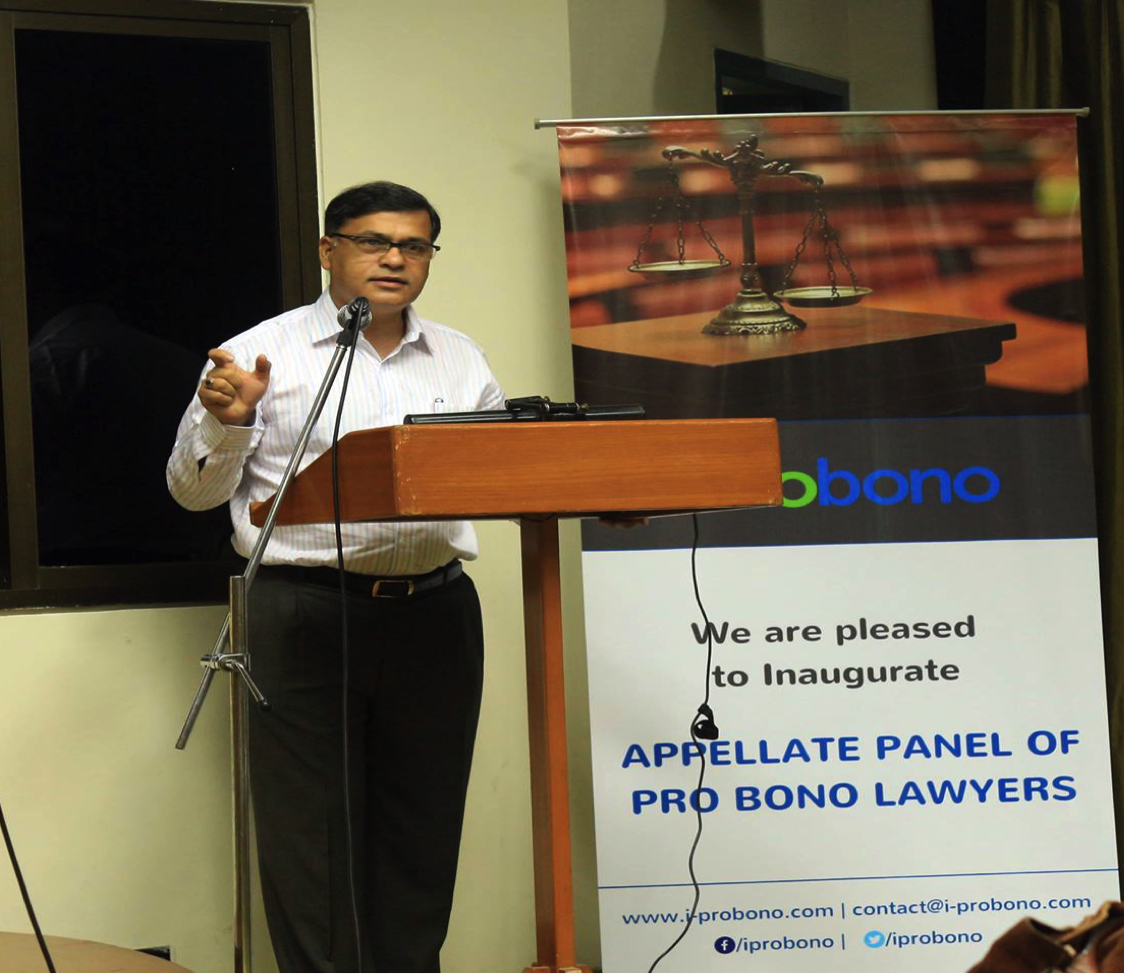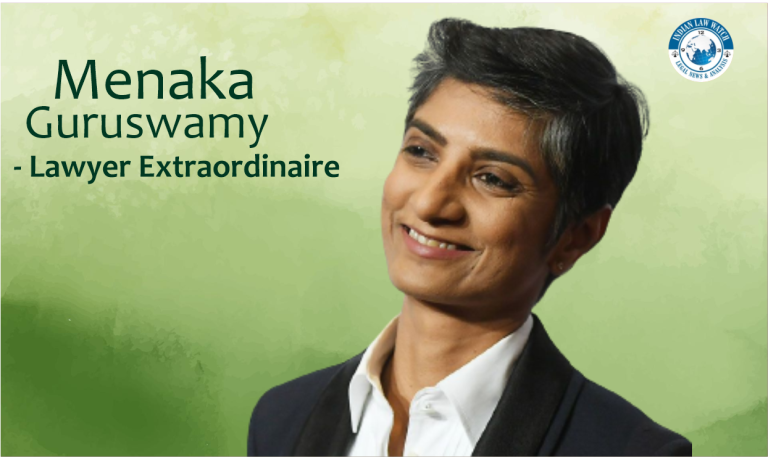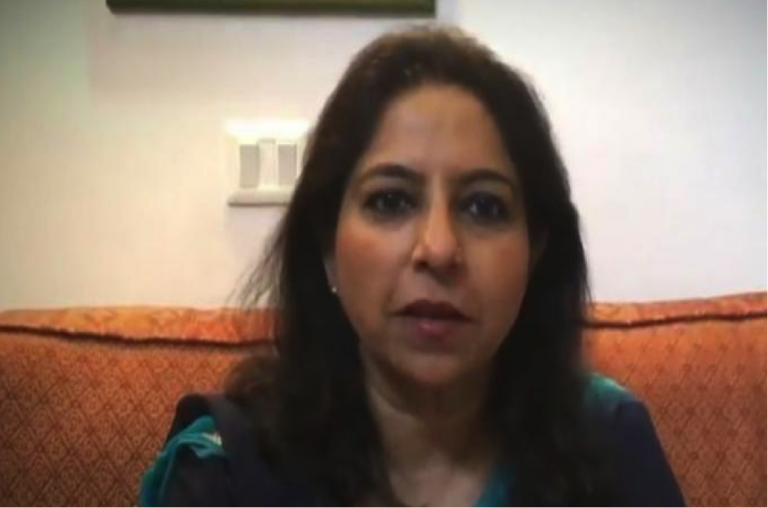
Siddharth Luthra a name that needs no introduction studied mathematics in college. Destiny is the push of our instincts to the pull of our purpose. As destined, he found maths to be a very dry subject, and then his destiny pulled him to law. In his time, the popular options were medicine, engineering and chartered accountancy. But in his case, his late father, Mr. K K Luthra, being a senior advocate of eminence, he was familiar with legal terrain, and that prompted him to consider the study of law. His education was from prominent colleges of India, he did my LLB from eminent Campus Law Centre after his Mathematics honours at Hindu college. His family background has eminent Senior advocate, Geeta Luthra as his sister.
While in law college, he was interested in research and academia and thereafter went overseas to do an MPhil in Criminology which further spurred his interest in academia and research. His desire was always to be a teacher and not necessarily practice law and he did teach at the Campus Law Centre at Delhi University in the year 1997. He was currently a visiting professor at Northumbria University, UK and at judicial academies, to government officials and to corporate lawyers (in-house lawyers). However, since he lost his father in 1997, financial constraints restrained him to continue to teach law and he gave it up after a year and focused on the practice of law.
His father was an eminent criminal lawyer and his own professional aura was waiting to shine and he did not want to grow up under his shadow so after finishing his masters in 1991, he worked in Bhasin & Co. under Mr. Lalit Bhasin and his team including Ms. Nina Gupta Bhasin, Mr. Atul Sharma now of Linklegal, Mr. Vijay Gupta, Mr, J K Das and others for a year. He started civil and consumer law with them and continued to do civil law till the year 1996. In 1994, he began getting occasional criminal lawyer briefs but in 1996, when his late father fell ill and he began to assist him in his matters. At the same time, one of my father’s old associates had left after three decades with him, so his father began relying upon me for assistance and research.
The confusion to choose between civil and criminal practice often cross over ordinary law students and so was Mr Luthra’s desire to do civil commercial law was also burning. So, in that period till 1996, he did a lot of corporate advisory work, set up companies, applied for an industrial licence and got it. While he went to court he completely enjoyed it, that was not the end of his practice and he focused on documentation and transaction work. In October 1996, his late father fell ill and as he said, he began doing criminal work with him, and he lost him in May of 1997. When he passed away, most of his existing clientele gave him junior briefs in the matters he had been doing and he continued with those cases.
His next break came when he did the Classic Computers case in Bangalore in 1997 in which he was lead by the late Mr. P. R. Vakil, Senior Advocate, succeeded in getting discharged in the High Court for client who was the supplier of the computers which was upheld in the Supreme Court. About the same time, he got a chance to do a tribunal under the Unlawful Activities (Prevention) Act, 1967 and more importantly, he became the lawyer at the Tehelka Commission for the portal Tehelka.
Professionally, the eminent senior advocates wife is also a lawyer and he had two children. After Tehelka, things started opening up and he got recognition and acknowledgement and public acceptance as a lawyer practicing criminal law.
So his criminal law practice really began in 1997 and he still have more recollections of the provisions of the Civil Procedure Code or so he believe, than of criminal procedure code! His work began picking up after 2002-03, when he began getting lot of opportunities in junior briefs and by 2003-04, he was being briefed extensively. He was doing criminal work, though between 1998 and 2000, she had done a lot of my criminal matters as well, while he was away to Bangalore. But, after 2003, this large office of about 15 lawyers was doing its own work and he was getting a lot of junior counsel briefs and by 2003-04, judges in the high court would not giving me a Passover. He took it as a challenge and started accepting a lot of junior counsel’s individual briefs and began building his work.
In December 2006, he was sounded out to apply for designation as Senior Counsel. He applied for designation in July 2007 and was designated when he was 41 years of age. That became a time to reinvent myself and it was harder and more challenging since one was not competing with younger lawyers but with more able and more capable, experienced and knowledgeable senior counsels. He began picking up work as a senior counsel, he was always flexible on fees which helped me in good stead. Also, he would always did his own research and he continued to have his own research done, irrespective of whether the briefing junior has done research or not. His reliance is on his own work largely and his inhouse junior’s research, though sometimes there is a lot to learn from what the briefing counsel brings to the table, since they have naturally a larger and more comprehensive picture format.
In 2009, he got a big break, which was being appointed as government advocate under the Judges Inquiry Act regarding the impeachment of Justice Soumitra Sen, where we succeeded. The Rajya Sabha upheld the judgment but he resigned before the motion could be taken up in the Lok Sabha.
He was offered judgeship when he was 43, in the year 2009 and thereafter again later but he took a personal and conscious decision with the support of his family.
Thereafter, he got a chance to become Additional Solicitor General in 2012, having been sounded out in 2011 and he did two years as Additional Solicitor General, doing a variety of work which was very challenging and which gave him a lot more confidence building me for what he is today.
Luthra believes criminal law is a great career option for students as white collar crimes are on the rise. “Every now and then there are scams and it’s exciting to deal with various aspects of human nature while handling different cases,” he says.
He has been running an international moot court educational programme in his father’s memory since 2004
When not at work: Reads, listens to music and admires nature
Getting to know him
“You have to be so good and thorough that no one can lay a finger on you.” This is what K K Luthra, Sidharth Luthra’s father told him when he started his journey in the legal world. This today has become a guiding principle for him.
Photo: Facebook





